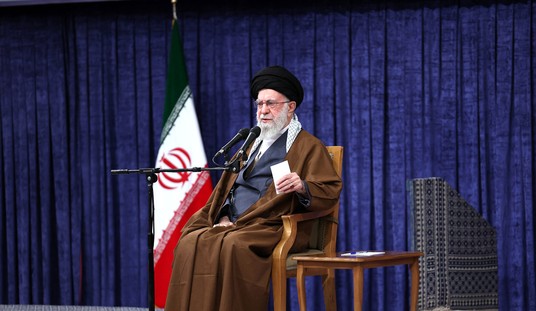We need to have an unhappy talk about a few things.
Let’s start with the minimum wage hike being demanded by the White House. The CBO says raising the minimum wage will lift 2.5 million Americans out of poverty, but at the cost of 500,000 jobs. Other studies through the years have proven at various times that the minimum wage hurts employment, except when it helps, or the other times when it has no effect at all. The results often seem to depend on who’s doing the studies — so it’s hard to say for sure.
I’m going to assume however that the CBO is mostly on-target. We’ve been in a jobs crisis for so long that the crisis is often called “the new normal.” Making hiring more expensive might be a boon in good times when the money is rolling in and the product is flying out the door, but these are most emphatically not good times. Wages tend to go up during booms anyway, which might make minimum wage hikes then the equivalent of spitting with the wind.
But as previously noted, the studies I’ve seen are all over the board, so I’m going with my gut and a shot of 80-proof Econ 101.
What really lifts people out of poverty is steady work. A minimum wage job is typically your first job. You don’t know much, you can’t produce much, so you’re not worth much. With time and experience your skills and productivity increase, and pay raises typically follow. So do promotions. This is what we call a “career.”
The trick it seems to me then is to get that foot in the door, to get that first job no matter what it pays. Some starter jobs are considered so valuable that young workers will do them for free. This is what we call “interns.”
So perhaps a minimum wage of $10 or so really would lift 2.5 million Americans out of poverty. But it would also be condemning half a million Americans to continued poverty, and perhaps even longterm dependency. When food stamp spending is at record levels (doubled just since Professor Ditherton Wiggleroom’s election, and despite five years of “recovery”) this would seem an unwise moment to eliminate any number of entry-level jobs. If we’re looking at wage mandates as social policy (and as a libertarian the idea makes me cringe) then we might better serve the poor by creating a sub-minimum wage for first-time employees under the age of, say, 25, who are brought on as additional hires. Anything to get people honest work with practical experience and real, if modest, paychecks.
Anything, really, to avoid condemning young Americans to a lifetime on the dole.
Ideas like this are bound to go nowhere in today’s Washington, which is mired in the New Deal notion that the way to eliminate poverty is to make everything more expensive. I might have mentioned this before, but the expression (and the song) “Nice Work If You Can Get It” dates from the Great Depression. Washington had, during a time of crushing poverty and deflation, jacked up the cost of labor. If you were employed, you generally had it pretty good. But the cost was a destitute and permanent underclass of the unemployable, adding up to about 15-20% of the workforce. So the work really was nice; the getting it was hard.
And things went on like this for years and years. The Great Depression refused to end until FDR died and his employment-hostile polices died with him.
Such magical thinking, that to cure poverty one must raise prices, came back to Washington with the new administration in 2009, and as a result, today’s underemployment rate was recently measured by Gallup at New Deal-worthy 18%.
If you don’t believe me, look at every policy and gimmick Washington has produced since the crash of 2008.
The housing bubble burst? Reinflate it. Stock market crashed? Pump it up. Energy is cheap? Cause prices to “necessarily skyrocket.” The middle class can’t save enough money? Force them to sock even more away by decreasing the returns on their savings. Medicine is too expensive? Force hospitals to close. Banks, too big to fail, cost taxpayers billions? Make the banks bigger. Washington is spending trillions it doesn’t have? Have the Fed print up trillions more. Employment is scarce? Raise the minimum wage, mandate pricy insurance plans, bolster unionization, and all the other employment-hostile policies we’ve seen these last several, dismal years. Even free speech costs a pretty penny in legal fees, once the weaponized and hyperpartisan IRS starts looking you over.
The Fed has tried to make literally everything more expensive by jacking up inflation with trillions in Monopoly dollars, but as a nation we’re too tapped to spend even free money. The fact that Japan has been trying the same trick without success for more than 20 years now has yet to penetrate the halls of fiscal power. Maybe the next quantitatively easy four trillion dollars will lead to the $25 Big Mac to pay for the $10 burger flipper.
The only things Washington has made less expensive since the Great Recession began is securities speculation for the rich, and dependency for the poor. The rest of us have the pleasure of footing the bill with stagnant paychecks and diminished opportunities.
If I seem to have lost my original point about the minimum wage, that was no accident. The issue itself is a replay of the Left’s fictitious War on Women — an election-year distraction from the real harm this administration has done, with malice aforethought, to the once-great American middle class.










Join the conversation as a VIP Member